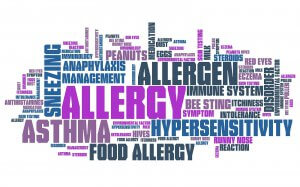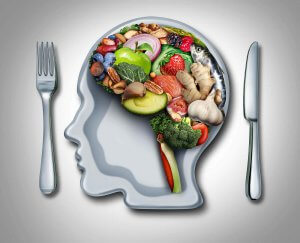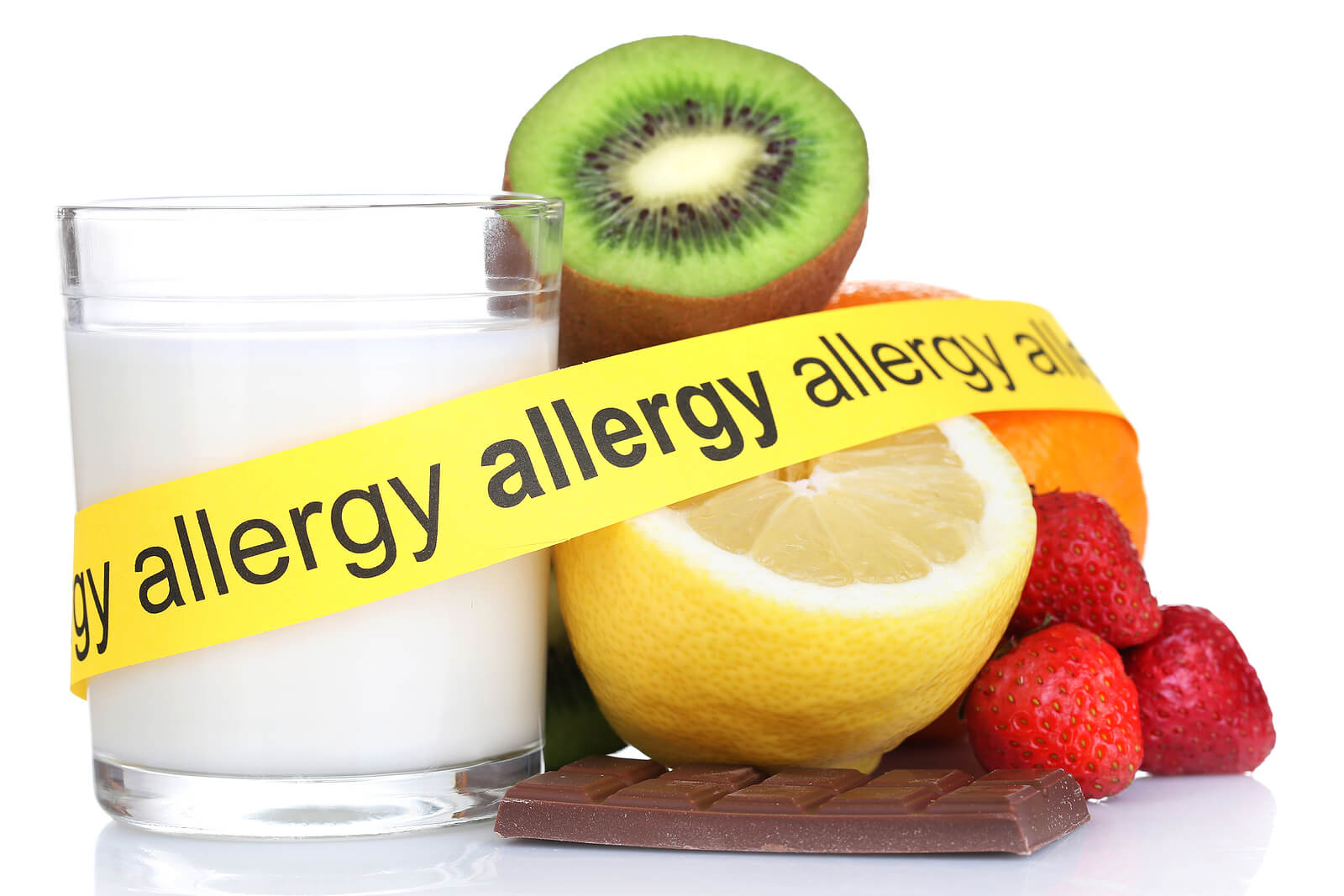
Dispelling Misconceptions
Misconception #1: “Food Allergies are Just a Fad”
Reality: Nope, not at all! Food allergies are legit immune system reactions, not trendy choices. For many individuals with food allergies, advocating for themself is stressful. They fear that they will be dismissed or seen as high maintenance. This self-consciousness can create risky scenarios when safety is not front and center.
Misconception #2: “A Little Bit Won’t Hurt”
Reality: Uh-uh. Even tiny amounts of allergens can trigger big reactions. This can be highly anxiety-provoking if friends, family or the local waitstaff believe just peeling the cheese off a burger makes it dairy-free. People with food allergies need to consider how safe food is prepared and processed. Indeed, vigilance is key. Cross Contamination can happen when safe foods are contaminated. When a safe food “causes” an allergic reaction, it can feel like even the food that you can eat could be dangerous.
Misconception #3: “Children Will Outgrow It”
Reality: While some might, it’s not guaranteed. Moreover, for allergens like peanuts and fish, it is less likely that they will be outgrown. Each case is unique and should be treated as such. Assuming that allergies will be outgrown can leave parents feeling unsupported in the challenges of living with food allergies. Furthermore, this lack of support can be isolating and discouraging.
Misconception #4: “Avoiding Allergens Is Easy”
Reality: Nope, it can be tough! Avoidance is challenging and can lead to stress and anxiety. Food labels are inconsistent, as well as the words used for the food. Dairy allergen? Say no to whey, casein, and ghee. Moreover, food allergy individuals have to be vigilant about food preparation. They must consider any potential points of cross-contamination. Additionally, food allergens are not just located in food. They can be in art supplies. Shampoo and soap. Not to mention makeup and toothpaste. Even that walnut sponge you just purchased to clean your sink.
Misconception #5: “Food allergies are only about physical reactions, not emotional or psychological impacts.”
Reality: The truth is that many people are aware of the severe nature of food allergy reactions. Unfortunately, there is less of an understanding of the emotional and psychological impact of food allergies. It takes a high level of intention to always remember to bring life-saving medicine you hope to never need. It takes developed assertiveness skills to advocate for your food needs. Moreover, it takes commitment to not just exclude yourself from social functions. Sometimes excluding yourself is easier than bringing pre-prepared food. Similarly, it is stressful to be in charge of cooking all meals to ensure safety. Finally, it can be particularly hard for children and teens to feel different.
Impact on Mental Health

Practical Coping Strategies
- Education is Empowerment: Knowledge is power! Understanding the allergy, its triggers, and how to manage it can give individuals and families a sense of control.
- Open Communication: Talk it out! Encourage open dialogue within families, schools, and communities to foster understanding and support.
- Develop an Allergy Action Plan: Be prepared! Having a clear plan in place for dealing with allergic reactions can provide peace of mind.
- Seek Professional Help: You’re not alone! Allergists, therapists, and support groups can offer guidance and emotional support.
- Self-Care: Take care of yourself! Develop your self-advocacy skills. Practice stress-management techniques like mindfulness, exercise, or engaging in hobbies to maintain emotional well-being.
Supporting Families
For families navigating food allergies, support is everything. Here’s how we can lend a helping hand:
Listen Without Judgment:
Let them know you’re there for them. Listen with empathy and without jumping to conclusions.
Be Inclusive:
Spread the love! Create inclusive environments by accommodating dietary needs and promoting awareness.
Advocate for Policy Changes:
Speak up! Support policies that improve allergen labeling, access to allergy-friendly foods, and education for caregivers and educators.
Spread Awareness:
Educate others! The more people know about food allergies, the less stigma there will be.
Connect with Resources:
Point them in the right direction! Direct families to reliable sources of information, support groups, and professional services.
Get Support with Food Allergies and Anxiety with an Anxiety Therapist in Branchburg, NJ, Scotch Plains, NJ, and Across the State

- Reach out to a mental health professional who understands food allergies.
- Get to know our team of caring therapists
- Start managing food allergies with the support you deserve!
Other Services Offered by Brave Minds Psychological Services
Our team is happy to offer a variety of services in addition to support for food allergies and anxiety. We know that you may experience concerns with more than one mental health concern, which is why we are happy to offer a variety of services. We provide EMDR Therapy, couples counseling, postpartum counseling, and birth trauma therapy. In addition, we also offer therapy for trauma and anxiety. Our caring counselors provide mental health services for adults, teens, and children. We offer treatment for teen anxiety, social phobia in teens, child sexual abuse, child anxiety, and more. Prefer building a support network with group therapy? Our therapists also offer several options for group therapy. Our services are offered in person at our Scotch Plains, NJ office and through online therapy in New Jersey.


